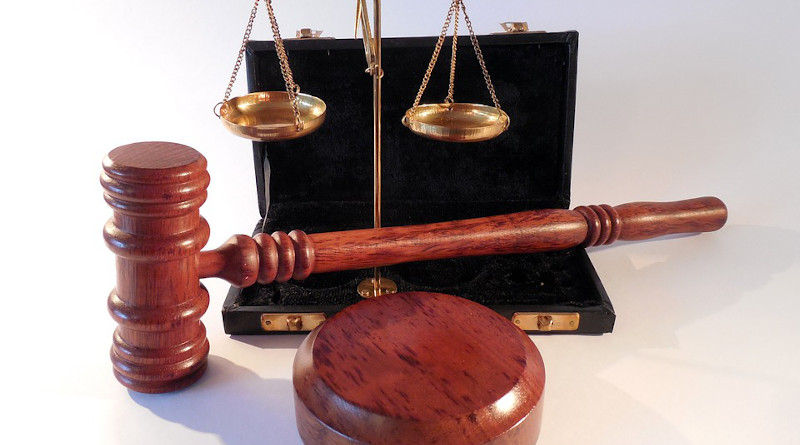Why Are Civilian Trials In Military Courts Justifiable In Pakistan’s Case? – OpEd
By Sarah Saeed
It is important to probe deep into the question that do civil wars lead to constructive outcomes. Almost all accounts of history point in the other direction, hence, sanctioning the dire need to curb any eventuality of a civil war that may devastate a nation-state system.
The most prompt and readily available tool for curbing such violence aimed at the government’s security institutions is through dispensing justice in military courts to restore order – all the while operating within the legal bounds of the constitution of Pakistan. Military court proceedings may be interpreted more effectively in scenarios where prompt resolution is required. Trials in military tribunals have been utilized in the past to try criminals who committed serious crimes, therefore they are not a novel concept in the record of world history. Due to the tremendous effects on the political and legal environments of the US and London, the Capitol Hill and London riots respectively, grab the attention on a global level. In both instances, the choice to use military tribunals instead of civilian courts for some defendants’ trials deviated from the norm.
On June 6, 2021, supporters of former President Donald Trump tried to reclaim his defeat to President Joe Biden by assaulting the US Capitol building, inciting violence, and interfering with the Joint Session of Congress that was gathered to officially declare Joe Biden the winner by tallying the electoral votes. The US congressional building was the target of violent attacks, and the D.C. attorney general stated he was especially considering whether to indict Trump and other officials. The visual investigation team analyzed these videos and worked with New York Times to deconstruct key moments. Trump addressed a large crowd of supporters at the “Save America” rally near the On June 6, 2021, supporters of former President Donald Trump tried to reclaim his defeat to President Joe Biden by assaulting the US Capitol building, inciting violence, and interfering with the Joint Session of Congress that was gathered to officially declare Joe Biden the winner by tallying the electoral votes. The US congressional building was the target of violent attacks, and the D.C. attorney general stated he was especially considering whether to indict Trump and other officials. At the “Save America” rally held outside the White House, Trump spoke to a sizable gathering of supporters, advising them to “fight like hell” but simultaneously urging them to march “peacefully” to the capital.
In a similar incident, Violence swept across Pakistan on May 9, 2023 after the police arrested former Prime Minister Imran Khan on corruption charges. A number of Khan’s supporters attacked police officers and set fire to ambulances, police vehicles, and schools. Among the places attacked were the military headquarters and other offices in Rawalpindi and the houses of senior military officials.Consequently, suspects have been charged with attacking sensitive defense installations not only in garrison but across the country.Following the clashes, police arrested thousands of members of Khan’s political party, Tehrik-e-Insaaf, on charges of criminal intimidation, rioting, and assault on government officials, and decided to hand over to Pakistan’s military for further trials.
On the question of legality of such process, Pakistan Army Act (PAA)1952, and the official secret act 1923 allow trying civilians in military courts in such circumstances, which include mutiny, spying and taking photographs in ‘Prohibited’ areas as clause (a) of sub-section (3) of section 2 of the PAA 1952 has stated the people who, “Raise arms or wage war against Pakistan, or attack the Armed Forces of Pakistan or law enforcement agencies, or attack any civil or military installations in Pakistan” would be held accountable under the PAA. Pakistan police have so far handed over 33 civilian suspects over to the army for trials in military courts with charges of attacking sensitive defense installations, stealing government equipment, computers and other equipments. The government claims that those who are responsible for creating violence will face trials in civilian courts but those entered and responsible for creating violence in military installations will be held accountable in military courts.
Military court proceedings are generally regarded as more suitable in scenarios where speedy trials are required for exclusive dealing of a particular matter. In dealing with certain offenses or circumstances, especially those involving military personnel or concerns pertaining to national defense, military tribunals may have specialized expertise and experience.
Especially with regard to high-profile instances that have attracted substantial public attention, the choice to use military court hearings may be driven by a need to reassure the public that justice would be delivered promptly and effectively. Military court proceedings may be seen as a way to protect the integrity of democratic systems in situations where the offenders’ acts are perceived as an immediate assault on democratic structures or procedures.
The prevalence of violent demonstrations in Pakistan has presented serious difficulties for the governmental and judicial structures. There have been certain cases when the choice to have criminal defendants tried in military tribunals as opposed to civilian ones has prompted discussions about the need and constitutionality of such actions. However, incidents that put the national security system in jeopardy and pose a risk of bringing about chaos must be tackled decisively. Trials of such offenders in military tribunals is one way of ensuring that undemocratic and anti-state forces do not find any place in Pakistan’s socio-political environment.
The author is currently working with an Islamabad-based think tank. She writes on South Asian security issues and her articles are regularly published at different International forums.

